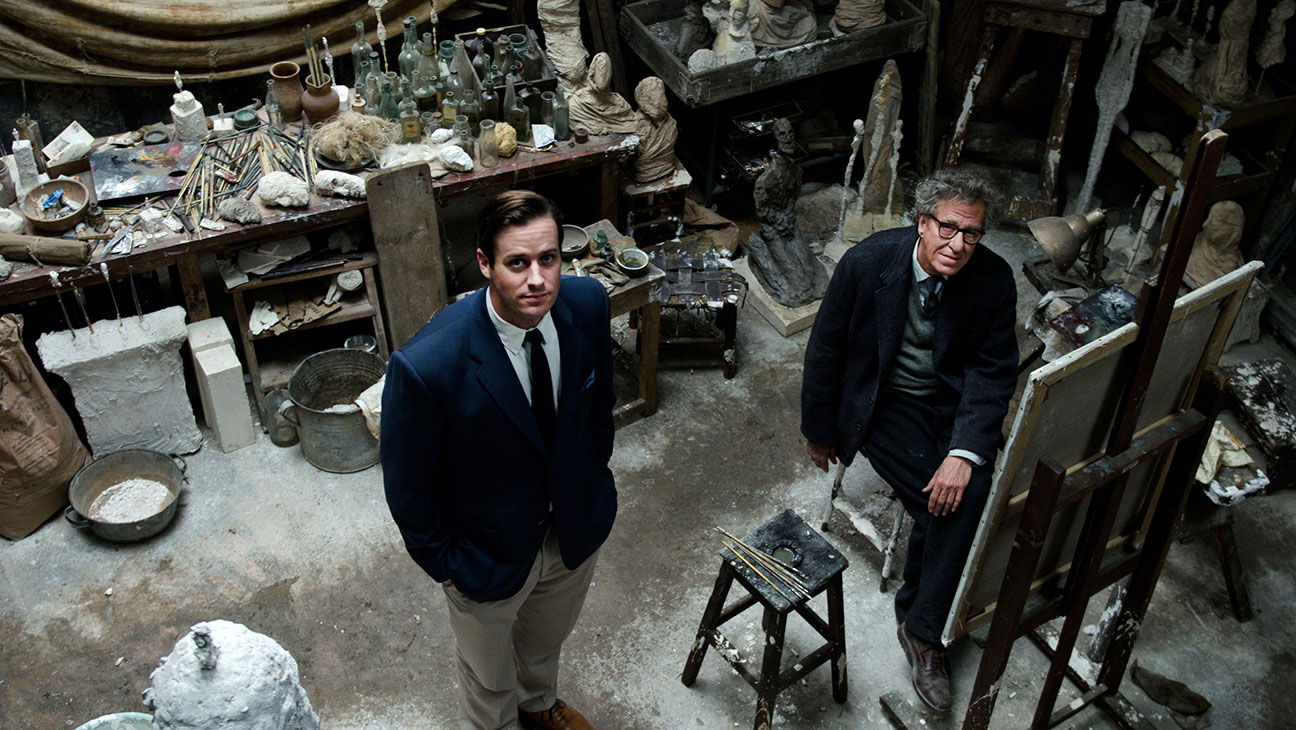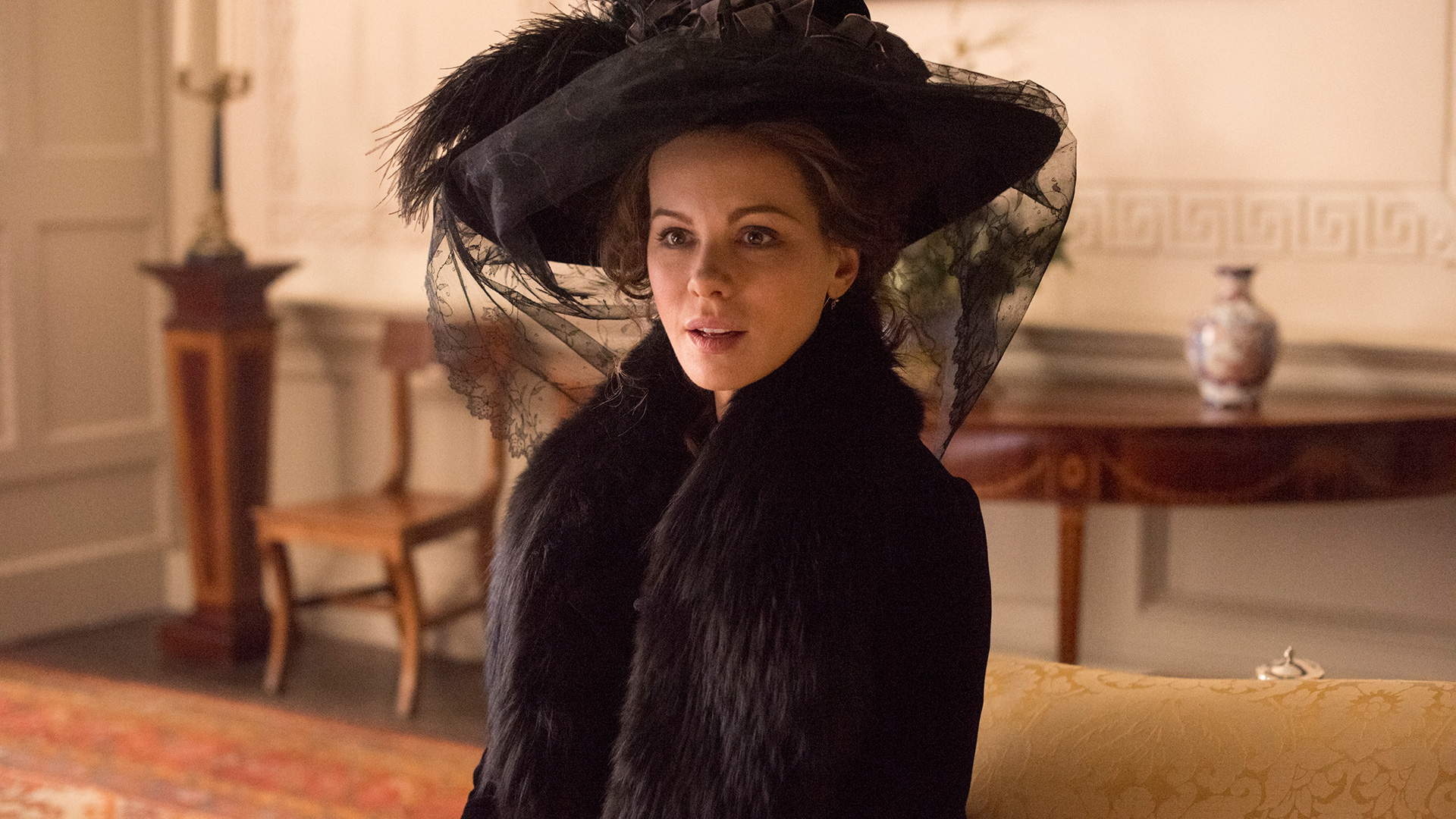Guest post written by Laura Witz.
The Guardian gives writer/director Stanley Tucci’s Final Portrait four stars, missing out on the fifth simply due to a lack of action. The Hollywood Reporter dubs it “a narrative with little consistent forward momentum and an anticlimactic ending, though the film remains agreeable thanks largely to Rush’s flavorful performance.” Little White Lies considers it too “French” for some, but notes that “while hardly a masterpiece itself, Final Portrait is exceptionally warm company.”
Yet, as I sat in the UK premiere of Final Portrait at the Edinburgh International Film Festival, I have to admit that it was not warmth I felt, but anger. There is no doubt, as all of these reviews note, that Geoffrey Rush is wonderful and Armie Hammer, while a little less so, is still quite good. But it is the film’s dismissal of women as either silly, dowdy, or dangerous, that allows it to slowly sink in that Final Portrait’s creators have seemingly internalized the misogyny of its subjects.
The film is a chamber piece about the artist Alberto Giacometti (Geoffrey Rush). It revolves around his creation of his “final portrait” — a title that rather gives away the ending. The portrait is of young writer, James Lord (Armie Hammer); the film is an adaptation of Lord’s memoir. Lord is originally told the portrait will take just one afternoon, but this stretches out for weeks as Giacometti misses the deadline and Lord delays multiple flights due to an awkward combination of politeness and vanity.
The set up for the film is a nice one and it creates a good basis for comedy, and indeed, it is in the comedy that Final Portrait does itself proud. However, what left me with a chill was the way the narrative turned the moment it included a woman. Giacometti has a wife and he frequents a sex worker, the latter of whom he makes no secret of.
The female characters are primarily kept out of the comedy and saved for the moments when the film takes a darker turn. Annette, the wife, played sympathetically by Sylvie Testud, provides the only relatively rounded woman/female character in the narrative. Annette is interesting, but not well enough drawn for us to understand her motivations for staying with a man who is borderline abusive. The scene in which it is implied that she is indulging in consolatory extramarital sex sits uncomfortably, a kind of narrative attempt to let Giacometti off the hook for his behavior. There is little reasoning for this and no further mention. Quite simply, the narrative, like Giacometti, is not interested in Annette.
Caroline (Clémence Poésy), a sex worker, is a nerd boy’s wet dream. She is sweet, girly and energetic to the point of irritating; she dances on screen and covers Giacometti’s eyes, calling him, cutely, “the old gray one,” and willfully dismissing Lord from the modeling chair. But, importantly, she is a sex worker, so Caroline’s entire job is presumably designed to make smug, aging, insecure men feel good about themselves. Yet by never showing us past this persona, the film itself buys into it, indulging in the non-threat of this child-like woman. At one point Caroline goes missing, and we wonder if we might be about to see more to her character, but then she turns up rained on and cute; her return to Giacometti is played like the end of a rom-com.
Amidst all of this, there is a baffling scene, played for laughs, where the wealthy Giacometti (who will give his wife no money) gives Caroline’s pimps more money than they ask for. In this, we are to forget that this is four men bargaining over the body of a woman and simply enjoy the concept of paying too much to greedy men. This is one of a number of scenes dropped in, seeming out of joint with the film at large. Another more disturbing scene involves Giacometti drunkenly searching the town for a replacement for Caroline. The camera shakily presents Giacometti’s perspective of the sex workers: cold, unforgiving and, most damningly, not Caroline. In this, they are the aggressors, and the drunken man looking to pay for a night of comfort is their victim.
Finally, following this scene, back in the studio Giacometti asks a baffled Lord if he has ever fantasized about raping and murdering two women. Lord looks surprised, and a little amused. Giacometti comments that when he was a child he found such fantasies comforting. And this scene, passed by without a second glance or any additional commentary, sums up the careless misogyny of the film.
Final Portrait is entertaining, fun in parts, silly, and a bit melancholy. It is also deeply, inescapably misogynist, so lost in being impressed with male genius that it forgets that women are even human. Giacometti, it is suggested, hates women. And yet, by never properly addressing his hatred and his fear, so, it seems, does this film.
Laura Witz is an editor and writer of plays and stories living and working in the UK. She has written plays that have performed at the Edinburgh Festival Fringe and the Jane Austen Festival in Bath and her articles and stories have been published in a number of institutions and publications, a few of which can be found on her blog. Witz hopes to one day become an aerial clown. You can follow her on Twitter @Charlotte_Prod.







